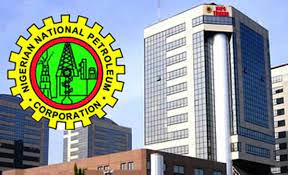
TBILISI, GEORGIA - JUL 18: Sale of agricultural products on central food market, Jul 18, 2011 in Tbilisi, Georgia. Suitable for farming areas account only for 16% of total territory of the country.
There has been a notable surge in the prices of essential food items across markets in Lagos State in the last two weeks.
Notably, a carton of Minimie noodles has soared by 102.6%, jumping from N4,350 to N8,800. Similarly, a large bag of melon seeds now commands a price of N270,000, up from N220,000 at the beginning of March. Another example is the Bonita Slim Pasta pack, which has seen a price hike of N200, rising from N995 to N1,195 in the same period.
These findings are part of a comprehensive food market survey.
Despite a strengthening national currency against the US dollar, the upward trajectory of major food item prices persists, further diminishing the purchasing power of the average Nigerian.
This trend is particularly concerning given the significant portion of household budgets allocated to food expenditures.
The National Bureau of Statistics (NBS) has disclosed that Nigeria’s headline inflation rate escalated to 31.70% in February 2024, a rise from the previous month’s 29.90%.
This 1.80% increment is attributed to several factors including the prolonged effects of fuel subsidy removal, which has led to increased expenses in household utilities, transportation, and production.
Additionally, the depreciation of the naira due to market-driven exchange rate policies, the ongoing security challenges affecting food production, the conclusion of the harvest season, and the soaring costs of farm inputs have all contributed to this economic pressure.
Specifically, the news highlighted a significant surge in food inflation, which soared to 37.92%, influenced by the escalated average costs of commodities. This marks a substantial 13.57% rise compared to the 24.35% rate of food inflation noted in February 2023.
The month-over-month escalation in food inflation is attributed to the pronounced price increases of bread and cereals, tubers such as potatoes and yams, fish, and beverages like coffee, tea, and cocoa.
The price of a 100kg bag of brown beans, initially averaging N108,700 in early March, has seen a 10.1% increase, reaching N119,650.
Additionally, the cost for a 50kg bag of white garri rose by 15.1%, from an earlier average of N43,000 to now N49,500 over the span of two weeks.
In a similar trend, a 400g package of Peak milk refill, previously sold for N3,850, has now climbed to an average price of N4,600, marking a N750 hike in just two weeks.
A 500g packet of Milo refill experienced a 19.1% price surge, moving from N2,350 to a current average of N2,800.
A large-sized tuber of yam, which was selling for an average of N3,500, has adjusted to an average price of N4,000. This change indicates a 14.3% price increase within a two-week period.
Likewise, the price for a 5-litre gallon of local vegetable oil has escalated by 15%, from an earlier average of N7,800 to N9,000.
A crate of eggs, formerly priced at N4,000, has also seen a 10% price jump, now selling at N4,400.
The cost of a 10kg bag of Honeywell Semovita witnessed a 16.3% surge, now retailing at an average price of N14,250, up from its former average of N12,250.
Furthermore, the average price for a large bag of pepper has risen by 17.4%, moving from N33,750 to N40,000. Meanwhile, a medium basket of round tomatoes has experienced a 15.5% increase in price, now averaging N27,000 compared to the earlier average of N23,000.
It’s important to note that the prices of certain food items, including cooking gas refills, wheat, milk, and others, have remained unchanged.
Amid soaring costs of food, transportation, and various services, Nigerians have voiced their frustrations in the latest food market survey.
At Lagos’s Oyingbo market, retailer Farida Mustapha shared team her decision to leave the market empty-handed due to the steep rise in foodstuff prices, which exceeded her budget. She preferred shopping at the Lagos discount market despite its limited selection and the high volume of shoppers.
A grain merchant at Daleko market remarked on the unexpected price jump in noodles, attributing it to demand and supply issues. He noted the difficulty his customers face in affording their usual purchases. “Nowadays, most purchases are noodles and spaghetti since rice has become more expensive, and even these items have seen a price increase”, he elaborated.
Similarly, Rebecca, a mother of four shopping at Mushin market, voiced her dismay over the doubling prices of food items. “I can no longer afford to fulfil my children’s requests but rather what’s available. The variety in our meals has diminished as we find ourselves repeating the same dishes,” she shared.
Malam Jubril, a pepper seller at Mile 12 market, linked the rise in pepper and tomato prices to increased transportation costs and insecurity. He explained that the surge in petrol and diesel prices has heavily influenced the cost of moving goods from the north to the south of Nigeria, affecting the retail prices of peppers and tomatoes.






